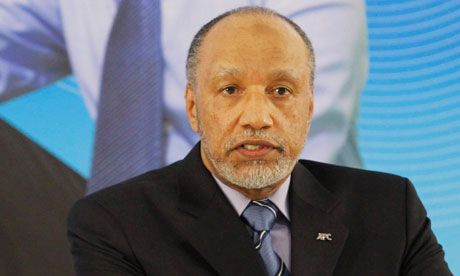FIFA Officials Accused Of Taking Bribes From Qatar For 2022 World Cup Winning Bid

As FIFA already copes with myriad difficulties surrounding Brazil’s preparations for the World Cup, a report accuses officials of the global soccer body of taking bribes in excess of £3 million from Qatar officials in order to secure the 2022 World Cup.
The London Sunday Times alleges that former Asian Football Confederation President Mohamed Bin Hammam of paying FIFA officials the relatively minuscule sum in order to secure the first World Cup site in the Middle East.
The Times has stated it has obtained an email cache of documents that prove Qatar’s winning bid is mired in corruption.
Bin Hammam was previously accused in 2011 of bribing officials in his attempt to become FIFA president.
FIFA chief investigator Michael Garcia has already begun an inquiry into the charges.
Many questions and accusations of corruption surfaced when Qatar was unexpectedly awarded the massive event in 2010. The oil-rich country has also been accused of human rights violations concerning the laborers who are constructing stadiums and other facilities.
Qatar is home to 278,000, nationals and has imported much of the necessary workforce from Nepal, the Philippines, India and Sri Lanka. It’s been estimated that more than 4,000 migrant laborers have died during construction. Last year as many as 184 Nepalese died from cardiac arrest after working in extremely hot conditions, according to the New Republic.
FIFA vice-president Jim Boyce responded to the accusations Sunday by supporting a re-vote for the 2022 bid if the allegations prove to be true.
"I would have no problem if the recommendation was for a re-vote," Boyce told BBC Radio. "If Garcia reports that wrongdoing happened for the 2022 vote then it has to be looked at very seriously.”
"The FIFA executive committee are 100% behind Garcia," Boyce said. "He will be allowed to go and speak to anyone from around the world to complete his mission. All evidence should go to him and we will then await a full report on his findings."
© Copyright IBTimes 2024. All rights reserved.





















